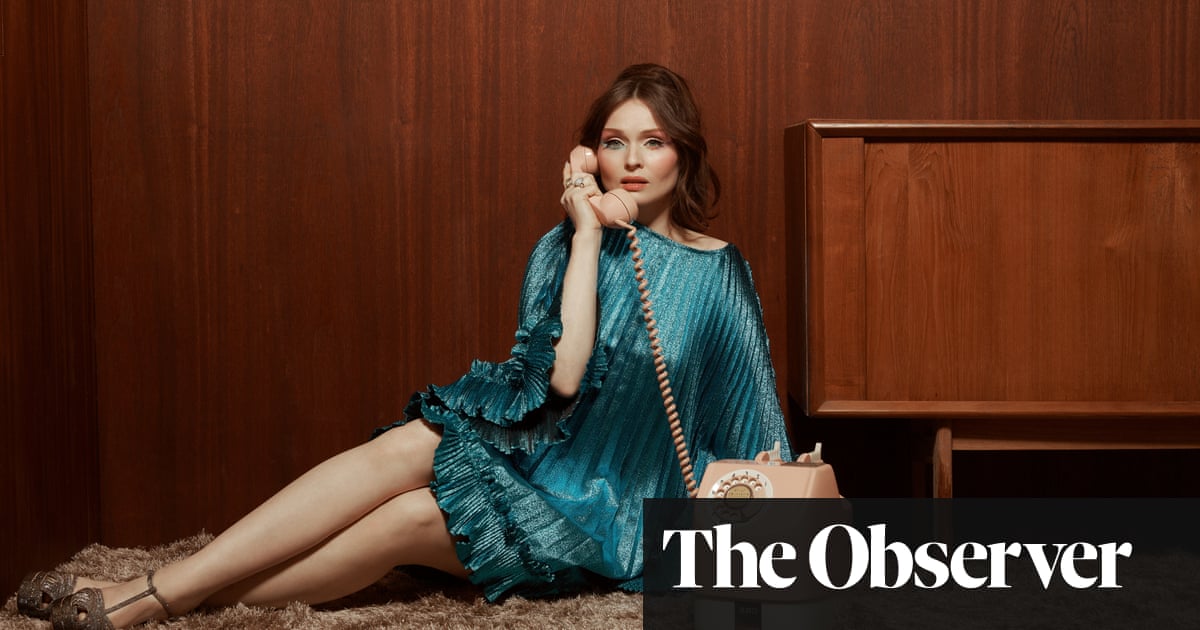
You thought you had a challenging lockdown? Imagine this scenario. The onset of a global pandemic coincides with your first experience of living alone. You have just separated from your partner and are heartbroken. Your industry is wiped out by Covid and all your engagements are cancelled. Oh, and your OCD flares up. It sounds bad, right? But not so bad that Catherine Bohart didn’t think she couldn’t get some banging standup out of it.
“I am, if anything, an oversharer,” she says. “I just say what happens to me, all of the time. And for the last two years, [lockdown’s] been what’s happening.”
The show, This Isn’t for You, opens at the Leicester comedy festival on 9 February. After last year’s festival “pivoted”, as they say, online, a successful Leicester event (it’s the UK’s second biggest comedy gathering behind Edinburgh) this time round will mark a significant staging post on the industry’s route back from Covid. It also launches a five-month tour for Bohart, whose career was in the ascendant until Covid put life on pause. Her two shows so far have made waves; the first, Immaculate, was released last year as part of Soho Theatre Live on Amazon Prime Video. Her face was familiar as one of Nish Kumar’s sidekicks on TV’s The Mash Report, where she explained border issues in her native Ireland to a Sesame Street-style puppet, and offered a guide to being “the kind of immigrant British people don’t mind so much”. She was also one half of fringe comedy’s hippest couple, with fellow comic, Edinburgh best newcomer nominee Sarah Keyworth.
In some parallel universe, Bohart’s next show might be about being coupled-up. “I was writing a show about my men-free life,” she says. “Because I live in a very queer bubble, I was dating a woman and we were moving into a house together. But I no longer live with that person, and this show is now about … well, heartbreak, and control.” It tells the story of her mental health journey through lockdown, but with laughs. “Because the lesson of the last few years,” says the 33-year-old, “is that the universe thinks it’s funny that we endeavour to control our lives.”
The issue of control may be more critical to Bohart than most: she lives with – and once spent four months in hospital for – obsessive compulsive disorder. “Because of my OCD, I actually took to lockdown well,” she says. “I was amenable to being a little hamster person. Morning time, eating time, sleeping time, working time, then go again: I quite liked the patterns and rules and controls.” The problems started when the rules relaxed. “When everybody else was like: ‘We can go back out into the world!’ I was like: ‘Do we have to go back into the world?!’ It was quite confronting and I felt incredibly anxious.”
Lockdown was also uniquely solitary for Bohart, who had hitherto “never spent any time alone”. And bereft, too: “Like all comedians, there was a 24-hour period where everything went. It was that dramatic: ‘Oh, there goes my next six months’ earnings.’” What sustained her (apart from a temping job and teaching via Zoom) was a weekly online show, Gigless, she put together while theatres were closed.
“It gave me hope on two fronts,” she says. “One, comedians were funny – and it was a big thing to see that this hadn’t broken us. And two, having a loyal and excited 100 people every week watching my stuff. That gave me a sense that what I was doing was worthwhile.”
Being a standup had never been Bohart’s plan. She grew up in Dublin, the daughter of a Catholic deacon – a relationship dissected in her 2018 debut. Comedy did not loom large: “We had only two channels on my TV until I was 18. I thought that three comics existed: Tommy Tiernan, Dylan Moran and Joan Rivers.” She trained to be an actor, but ended up temping for a property firm. She was 27 before she stepped behind a mic, encouraged by a group of female comics she had booked to perform at a corporate event. “They said: ‘You’re gobby. Are you like this when you’re sober? Do you want to come do a new material night?’ So I did.”
Neither was it a deliberate choice, says Bohart, to mainline knotty intimacies in her work. “But anything except the truth feels like filler to me,” she says. “Maybe it’s being an Irish person? My experience of Irish people is an inability to do small talk. It’s like: ‘Hello, what’s your trauma? Do you want mine?’” The oversharing modus operandi also came about because “the stuff my early audiences found interesting was the stuff that had been difficult for me in my life. Suddenly, being a woman was a good thing, being a queer person was a good thing, being foreign and from a religious background and having a mental illness were good things – in terms of making me distinct and giving me something to talk about.”
Bohart’s comedy ambitions are focused on simply getting funnier (“We all want that, right?”) and “being less questioning in my content”. “I’m often asking questions in my standup,” she says, “and not always answering them. And I want to. I think it’s an arrogance to stand on stage for an hour and not reach any conclusions. But I hope I’m decades away from being the best comic I’ll be.” Such are the aspirations of a comic now emerging from a Covid-era chrysalis, with a sitcom in the works, a tour on the starting blocks and a newfound zeal for the job she fell into.
“After what we’ve been through,” says Bohart, “I am more excited to do comedy – but less confident it’s a certainty – than I’ve ever been. So I guess it’s just about enjoying it while it’s happening,” she concludes, happily abandoning control – “and about getting a pension, which I must remind myself to do.”












